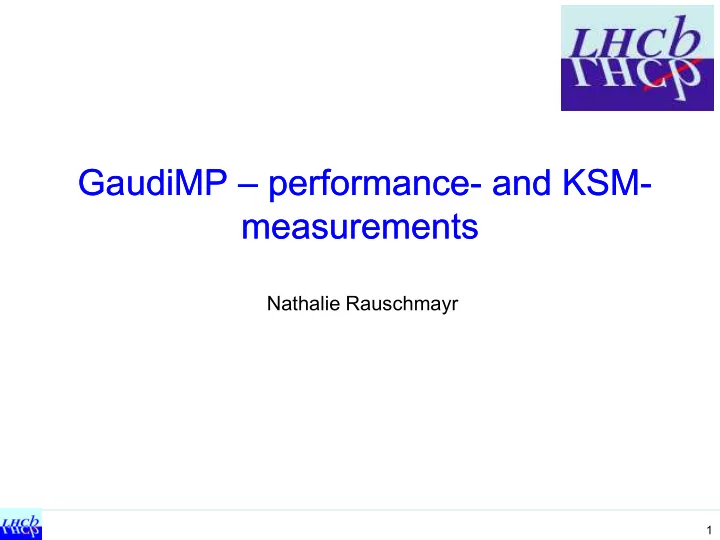

GaudiMP GaudiMP – performance performance- and and KSM KSM- measurements measurements Nathalie Rauschmayr 1
Overview Overview 2
Speedup Speedup Reconstruction of 10000 Events 3
Speedup Speedup Simulation of 100 Events 4
Limitations Limitations Problematic: when total event-throughput of workers reach the same value like writer ~ factor 10 5
Limitations Limitations Change Root-compression Writer throughput can be increased by factor 10 6
KSM KSM-results results madvise -call inside malloc-hook Monitoring of KSM-parameters Pages shared Pages sharing Pages unshared Pages volatile 7
KSM KSM-results results 2 Workers, Reconstruction 1000 8
KSM KSM-results results Pages_volatile increases with the number of cores 9
KSM KSM-results results Merging rate defined by: Pages_to_scan Time_to_sleep Modifying merging rate – example: 8-core machine worst case: analysis job 40 MB/s * 8 processes 1640 Pages 20 ms Decreasing CPU-consumption of KSM-thread 10
KSM KSM-results results Merging rate: 190 GB/s versus 585 MB/s 11
KSM KSM-results results 8 Workers, Brunel Reconstruction 1000 Events 12
KSM KSM-results results serial mode 2 workers 4 workers 8 workers Gauss 183 MB 623 MB 1275 MB 2659 MB ( 22 %) (33 %) (42 %) (48 %) DaVinci 190 MB 600 MB 1577 MB 3315 MB (10 %) (17 %) (24 %) (27 %) Brunel 94 MB 465 MB 1112 MB 1900 MB ( 10 % ) (23%) (32 %) (31 %) 13
Caveats Caveats Merging rate must be adpated otherwise high CPU consumption by KSM-thread KSM does not work on the level of virtual memory pages_volatile becomes likely a bottleneck madvise -call inside application 14
Conclusion Conclusion Without KSM: nearly no memory reduction GaudiMP scales well: But: Optimization for the writer process necessary Future plans: Find a solution for the writer process Evaluation: is KSM a good replacement for late forking Further memory optimzation: compression with compcache and zram 15
Recommend
More recommend